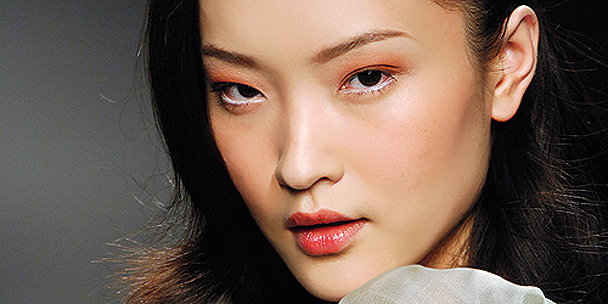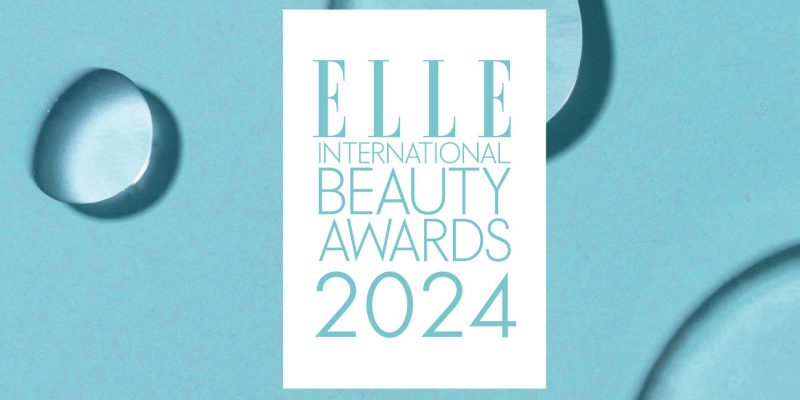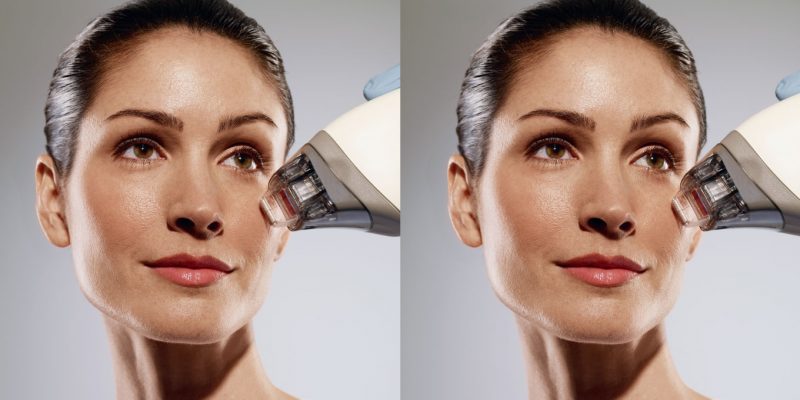Beauty
Bright side
Go for the glow with the newest radiance-boosting skin-care products.
by : Bonnie Malott- Dec 17th, 2008

Brides, expectant mothers and the newly in love have long had the monopoly on radiant, healthy – looking skin. But now the rest of us can mimic their glow, thanks to a bevy of new products that brighten lacklustre complexions and even out imperfections.
"[Healthy skin] looks pink, which is evidence of a good blood supply," says Dr. Fred Weksberg, a Toronto-based cosmetic dermatologist. "It also has shine and reflects light well."
Unfortunately, the luminous look isn’t easy to maintain as we age. Over time, the skin’s process of sloughing off dead skin cells slows down and becomes sluggish, says Dr. Frances Jang, a Vancouver-based dermatologist. "More cells are retained, leading to a thicker stratum corneum [the outer layer of the epidermis] and dull, dry-looking skin," she says. The result?
Uneven skin tone, which, according to a recent study, can make a woman appear a cringe-inducing 12 years older-independent of any wrinkles on her face.
Colour story
Melanin – the substance that gives your complexion its natural hue – is typically the culprit behind skin-tone irregularities, which are more noticeable as cell turnover becomes sluggish. While hormones, certain antibiotics and acne can all darken pigmentation, the biggest factor is sun exposure. Ultraviolet light leads to inflammation, which stimulates tiny cells-called melanocytes-to pump up the production of melanin. Thankfully, you don’t need to attack your face with harsh scrubs or chemical peels to reveal brighter skin. Brightening products can reduce the appearance of darker pigmentation and, as a result, minimize sunspots and dullness, says Holly Sherrard, education manager at The International Dermal Institute in Canada.
Hydroquinone – the commonest brightening ingredient-both speeds up the breakdown of melanin and blocks its production in the first place. But it can cause irritation and increased sun sensitivity, which has prompted many manufacturers to seek out plant extracts that can do the job just as well. Azelaic acid (found in wheat, rye and barley), kojic acid (derived from fungi) and licorice, bearberry and mulberry extracts all suppress melanin production but can be gentler on the skin. Vitamin C, which for years has been marketed as a wrinkle fighter, is also effective at improving radiance. "It has been shown to reduce the activity of tyrosinase, an enzyme involved in the pigmentation process," says Dr. Daniel Maes, vice-president of global research and development for Estée Lauder. "It also works as an antioxidant and protects cells from damage caused by UV light and pollution."
Light brigade
To get the best results, daily exfoliation is crucial, says Debbie D’Aquino, vice-president of product development for Clinique. "It removes dead skin cells, which can make dark spots look even darker,” she says.
Many formulations include lactic acid, glycolic acid and retinol, which help speed up the process. But sunscreen is key to prevention. "If people aren’t going to protect themselves from the sun, there’s no point in even using these products," says Jang. Still, former tanorexics can rejoice: "The easiest form of excess melanin to treat is the sun induced kind," says Sherrard. "What these products do is take your skin back to what it looked like when you were younger," says Jang. So look on the bright side: leopards can’t change their spots, but we can!
Lite-bright
Many products designed to improve radiance are marketed as "skin whiteners," but don’t worry! They won’t leave you looking like Michael Jackson. These products originated in Asia, where whitening is a term that’s synonymous with brightening. There, an alabaster complexion was traditionally considered a sign of beauty and status. But the reason people are seeking whiter or brighter skin now has nothing to do with social standing, says Jang. "It’s about a radiant complexion that’s uniform in colour."
Over-the-counter products labelled as whiteners don’t contain strong bleaching agents, so you can safely use them – in the same way you’d use a brightener – to even out skin tone and imperfections.
Check out skin brightening products on the next page …
Wrinkles: Are you at risk?
How to get a poreless-looking complexion
Image courtesy of ImaxTree.com
 |
|
Estee Lauder Hydra Bright Skin-tone perfecting Moisturizer ($46) |
|
|
 |
|
Dermalogica Night Bright ($84) |
|
|
 |
|
Lancome Blanc Expert High Potency Brightening Serum ($127) |
|
|
 |
|
Shiseido White Lucent Brightening Protective Moisturizer N SPF 16 ($63) |
|
|
 |
|
Clinique Derma White INtense Brightening Complex ($70) |
|
|
 |
|
Sisley Sisleya Radiance Anti-Aging Concentrate ($479) |
|
|
 |
|
NeoStrata Skin Brightener Treatment for Face, Neck and Decollete ($70) |
|
|
Newsletter
Join our mailing list for the latest and biggest in fashion trends, beauty, culture and celebrity.
Read Next

Fashion
This Canadian Swimwear Brand Designed Canada’s 2024 Women’s Olympic Beach Volleyball Team Uniforms
And they're *so* good.
by : Allie Turner- Apr 24th, 2024
Fashion
The Most Iconic Looks In Met Gala History, From 1973 To Now
40 years of the night that's all about trailblazing fashion.
by : ELLE Australia- Apr 24th, 2024

Beauty
Tested and Approved: Your New Hydrating Skincare BFF
This new product has all of your skin’s thirst-quenching needs covered.
by : ELLE Canada- Apr 17th, 2024




